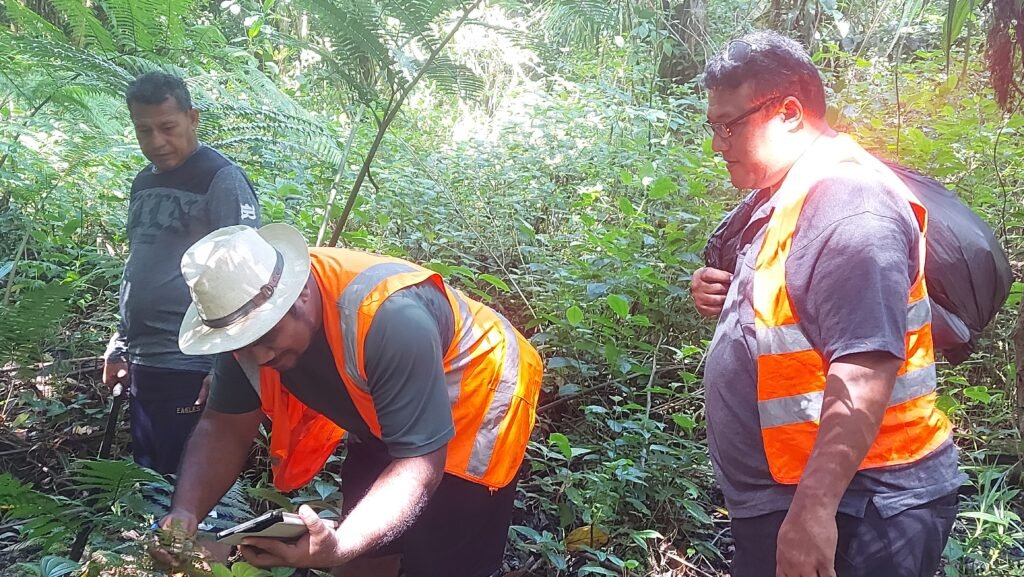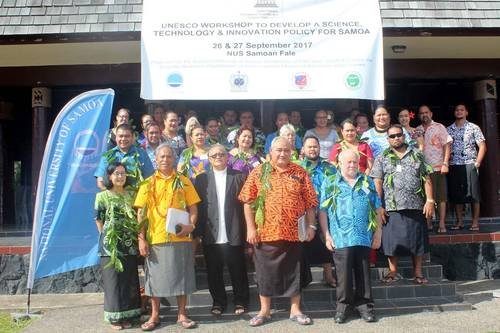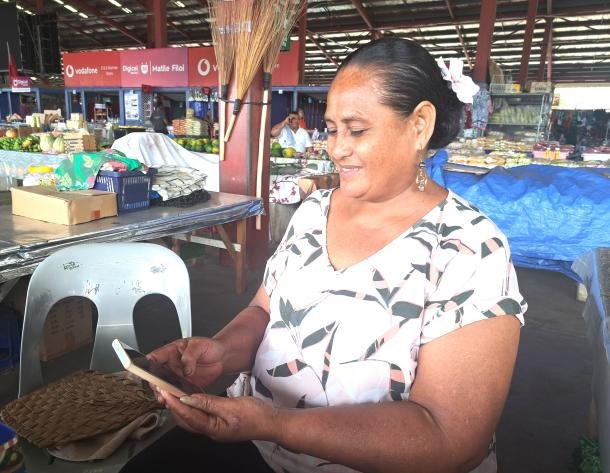In mid-November, the hills of Samoa will produce a message of hope and innovation for young scientists across the Pacific. Sam Saili, CEO of SkyEye Pacific—an ambitious tech-company rooted in Samoa—is set to share his journey with over 30 aspiring innovators at a UNESCO-organised bootcamp in Nadi, Fiji. The bootcamp is dedicated to entrepreneurship, with a focus squarely on science, technology, engineering, mathematics, and digital innovation.
These budding innovators—selected from hundreds of applicants—comprise under-35 physics, mathematics, engineering and IT students, lecturers and practitioners from Pacific Island nations. They will spend five days learning to turn scientific or technical ideas into real projects—how to assess markets, plan finances, protect intellectual property, conduct feasibility studies, and more. And at the end, teams will pitch to a panel acting as business angels, hoping their ideas will emerge victorious.
Table of Contents

SkyEye Pacific: From Samoa to the Pacific Stage
SkyEye Pacific, founded by Sam Saili and his siblings in 2013, operates at an intersection of geospatial technology, remote sensing, geographic information systems (GIS), fintech, and mobile apps. Saili notes that many Pacific Island nations have lacked access to such technologies because of cost and the small scale of their economies. “There are technologies businesses in the developed world take for granted,” he has said.
Over time, SkyEye has grown beyond Samoa. It now has subsidiaries in Solomon Islands, Tonga, and Vanuatu. The team is sizable: about 25 staff at SkyEye’s Samoan base and 40 in its branches—women make up roughly half of the workforce, and more so, its majority ownership is female. Sam Saili himself hails from a large family—one of 13—and he studied Commerce, Economics, and Information Management Systems on scholarship at Deakin University in Australia.

Solving Real Problems with Digital Tools
What sets SkyEye apart is not only its technology but its deep commitment to solving local challenges. Several of its products are designed to meet urgent needs in Samoa—and in the Pacific more broadly.
One flagship example is Maua (Samoan for “We have got this”), a digital platform that enables street vendors, farmers, fishermen, and people in remote areas to accept payments digitally—whether via mobile money, credit card, or bank transfer. It also allows Samoans living abroad to order goods from Samoa (groceries, hardware, pharmaceuticals) and have them delivered to remote family members. For many, this has meant no longer being cut off from basic services or struggling with cash-only systems.
In 2020, during the Covid-19 pandemic, SkyEye rolled out MauaPay: Samoa’s first interoperable payments gateway. MauaPay connects all mobile money, credit cards and bank systems on one platform, helping people to transact even amid lockdowns and travel restrictions.
SkyEye also addresses geographic and environmental issues. In countries where roads often don’t have names and few landmarks are documented, navigation is a challenge. To solve this, SkyEye developed GIS tools recording landmarks—churches, schools, shops, natural sites, etc.—which show up on custom maps.
Another key service is its vehicle-tracking and fleet management system. Goods in Pacific nations are mostly imported; many people live in rural areas; fuel is expensive. SkyEye’s system allows companies to monitor speed, route, and expenditure, thus optimising cost and time. It also helps with safety: for example, detecting reckless driving or reporting stolen vehicles.
On environmental monitoring, SkyEye uses drones and GIS for high-resolution imagery. They monitor land use, water catchments, assess risk of landslides and flooding—issues becoming increasingly urgent under climate change. They also help train public servants in ministries to carry out drone flights, process imagery, and build maps.
Bootcamp in Fiji: Shaping the Next Wave of Pacific Entrepreneurs
The bootcamp, set for 17-18 November with full engagement over five days, is being organised by UNESCO together with ET Cube International and the International Union of Pure and Applied Physics (IUPAP). It is the third regional entrepreneurship bootcamp—following previous editions in Egypt and Panama.
What participants will learn is wide-ranging: from assessing opportunity, doing feasibility studies, designing surveys, startup finance, business plans, protection of intellectual property, marketing and sales strategies, and even leveraging digital marketing tools and artificial intelligence. On the final day, teams will pitch their ideas to a panel of experts acting as business angels, receiving feedback and possible recognition.
For Sam Saili, this is more than just giving speeches—it’s about transferring experience. He will tell how he convinced business angels to invest in SkyEye, how he scaled from Samoa into other Pacific nations, and how he built products that met local needs and survived global disruptions like Covid-19.
Why This Matters—and What It Means for the Pacific
SkyEye Pacific is not only making profits; it is being described as a social enterprise. Its priority is impact—identifying unaddressed problems and building digital solutions to fix them, rather than merely chasing revenue. In Samoa, this means including underserved populations—village dwellers, farmers, fishermen, the diaspora—and providing services in both English and Samoan to ensure inclusion.
For young scientists and innovators in the Pacific, hearing SkyEye’s story could be transformative. They will see how a home-grown startup can become regionally relevant, how technology and entrepreneurship can respond to local challenges instead of being imported after the fact. They will understand what it takes—not just in theory but in practice: pitch preparation, risk, scaling, and keeping social purpose alive.
From a broader regional perspective, boots on the ground-training like this is essential. The Pacific Islands face unique challenges: small populations, geographic dispersion, high transportation and communication costs, environmental threats, climate change, and resource constraints. Empowering young talent with skills in research commercialisation, technology development, and sustainable business practice helps build resilience.

Conclusion
As November arrives, the Pacific-wide bootcamp in Fiji will offer more than training: it will be an incubator of hope. For SkyEye Pacific, for Sam Saili, for every young scientist or engineer under 35 with ideas tucked in a notebook—that gathering offers a chance to see what is possible when vision, technology, purpose and perseverance meet.
Join Our Social Media Channels:
WhatsApp: NaijaEyes
Facebook: NaijaEyes
Twitter: NaijaEyes
Instagram: NaijaEyes
TikTok: NaijaEyes




